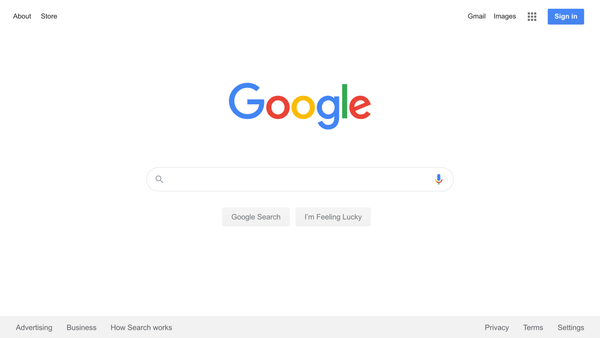Optimizing Your Google Business Profile for Traditional and AI Search
When diners search “restaurants near me,” they’re not just browsing — they’re making decisions.
Your Google Business Profile is the first impression potential guests have of your restaurant, and it can make all the difference between a booked table and a missed opportunity.
In a recent Marqii Live Session, Kelsey (VP of Marketing at Marqii) sat down with Brad (Google Search Partnerships Team) to talk about how restaurant operators can stand out in both traditional and AI-powered search.
They covered everything from the basics of keeping your profile up to date to how AI is changing what “search” even means. Below, we’re breaking down their top takeaways and easy-to-implement tips to help your restaurant get discovered (and chosen).
Your Google Business Profile: The New Front Door
Your restaurant’s Google Business Profile is more than just a listing — it’s your digital front door. According to Kelsey, the guest experience begins in search, not when someone walks through your doors. Think of it as your chance to make a great first impression before your guests even check the menu.
Brad compared it to a “first date” with potential customers — and you definitely want to put your best foot forward.
Kelsey from Marqii shares tips on Google Business attributes and how a complete profile can help you SEO.
Tip #1: Complete All Profile Attributes
A surprising number of restaurants leave important details blank. Things like your hours, contact info, menu links, and accessibility features all play a role in whether Google (and guests) trust your information.
Pro tip: Even if your holiday hours are the same as usual, verify them in your profile. Google rewards accuracy — and guests appreciate it too.
Actionable Step: Double-check every field in your Google Business Profile, from amenities (like Wi-Fi and kid-friendly options) to service types (like curbside pickup or delivery).
Tip #2: Leverage High-Quality Photos
Photos are one of the biggest factors in conversion. Brad shared that 90% of users are more likely to visit a restaurant with engaging, high-quality visuals.
Think of your photos as part of your brand story: they should showcase your food, your space, and the kind of experience guests can expect.
Actionable Step: Upload new, well-lit photos every season — including dishes, interior shots, and even parking info. Kelsey recommends refreshing your visuals quarterly to keep things current and consistent across all platforms.
Search Is Changing: From Keywords to Conversations
The way people search is evolving — fast. Traditional Google search used to mean typing in a few keywords and scrolling through a list of links. Now, with AI-powered search, it’s about conversation. Guests are asking specific, natural-language questions — and Google’s AI wants to respond like a friend with great recommendations.
As Brad explained, restaurants that adapt early to these new AI-driven search behaviors will show up more often and in more meaningful ways. Kelsey added that it’s not just about being found — it’s about being understood by both Google and your guests.
Tip #3: Make Your Content Rich and Timely
If your menu hasn’t been updated in months or your photos look outdated, Google notices... and so do potential guests. Rich, current content helps AI and traditional search tools understand your business and prioritize you in results.
Did you know? Google favors “fresh” content in search rankings. Regular updates tell the algorithm your business is active and relevant.
Actionable Step: Use schema markup on your website and ensure your menu structure is clear with categories, dish descriptions, and prices. Add photos and dietary labels (like “vegan,” “gluten-free,” or “spicy”) to improve both guest experience and SEO performance.
Tip #4: Think of AI Search as Word-of-Mouth
AI search acts a lot like your most loyal customer — the one who’s always recommending your place to friends. It pulls from reviews, menu updates, and online mentions to decide what to “say” about your restaurant.
Brad noted that this conversational approach rewards restaurants that consistently share engaging, hyperlocal content — like new menu drops, trending dishes, or community events.
Actionable Step: Encourage reviews and reply to them regularly (AI loves activity). Keep your menus and posts fresh, and embed key items directly into your Google profile instead of linking to a PDF or third-party site.
Winning Local Search: How Consumers Find You
Your potential guests are searching right now — often from just a few blocks away. Kelsey pointed out that 80% of consumers perform local searches on mobile devices weekly, and many of those searches lead to real-world purchases.
“Restaurants near me” searches have clear purchase intent. When your listing is accurate, complete, and relevant, you’re far more likely to capture that intent and turn it into a reservation.
Tip #5: Prioritize Accuracy and Prominence
Google’s local search algorithm focuses on three key factors: distance, relevance, and prominence. You can’t control where someone searches from, but you can control how complete and useful your information is.
Pro tip: Mention nearby landmarks or cross-streets in your description — it helps both guests and Google understand your location context.
Actionable Step: Check that your restaurant’s category and service types are correct, add details like parking availability, and make sure your location pins are accurate.
Tip #6: Use Google Posts Strategically
Google Posts are a simple, effective way to show activity on your profile — and active profiles perform better. Brad shared that while Google’s post analytics are still improving, businesses that consistently update their listings with specials, events, or new dishes tend to see higher engagement rates.
Think of Google Posts like social media for search: short, visual updates that tell guests what’s new.
Actionable Step: Share timely promotions, menu changes, or events using Google Posts. Tools like Marqii make it easy to schedule these updates across platforms and track engagement right in your dashboard.
Build Trust Through Reviews
Your Google Business Profile isn’t just about visibility — it’s about credibility. Reviews tell guests (and Google) that your business is active, trusted, and delivering great experiences.
Both Kelsey and Brad emphasized that consistent review responses can dramatically improve your overall rating and search performance.
Fact: Restaurants that respond to reviews see their average star rating increase by 30%.
Tip #7: Respond to Reviews with Intention
Every review is an opportunity to show hospitality, even when the feedback isn’t glowing. Replying shows guests that you’re listening, learning, and care about their experience.
Actionable Step: Set aside 15 minutes each week to reply to new reviews. Thank guests for positive feedback and address concerns with empathy and professionalism. And don’t forget to ask happy guests to leave reviews — fresh feedback keeps your profile relevant.
Make AI (and Guests) Love Your Visuals
Your photos do more than make mouths water — they help search engines understand your brand and offerings. Visuals paired with structured data (like schema markup) help AI connect the dots between your content, menu, and reviews.
Brad explained that Google uses image recognition to analyze everything from plating style to ambiance, and consistent tagging can improve visibility.
Tip #8: Balance Design with Functionality
Consistency is key. Your Google profile should reflect your website and social channels — same colors, same vibe, same attention to detail. That harmony helps both guests and AI recognize your brand instantly.
Pro tip: Add alt text and tags to your images so Google knows what it’s seeing — for example, “interior dining room with natural light” or “signature cheeseburger with fries.”
Actionable Step: Sync your website menu and photos with what’s in your Google Business Profile. Tools like Marqii automate updates so you don’t have to manually edit every change.
Conclusion: Make Search Your Strongest Sales Channel
Search isn’t just about visibility anymore — it’s about hospitality. The way you show up online is part of how guests experience your brand.
Whether it’s a fresh photo, an updated menu, or a thoughtful review reply, every action you take on Google helps you stand out in a world where AI search and guest expectations are evolving fast.
Your guest’s journey starts in search — make sure what they find feels like an invitation.
Marqii clients: Schedule your next Google Post or update your listing right from the dashboard. Not a client yet? Schedule a demo to see how Marqii can help you keep your Google Business Profile fresh, accurate, and ready to show up in search.





